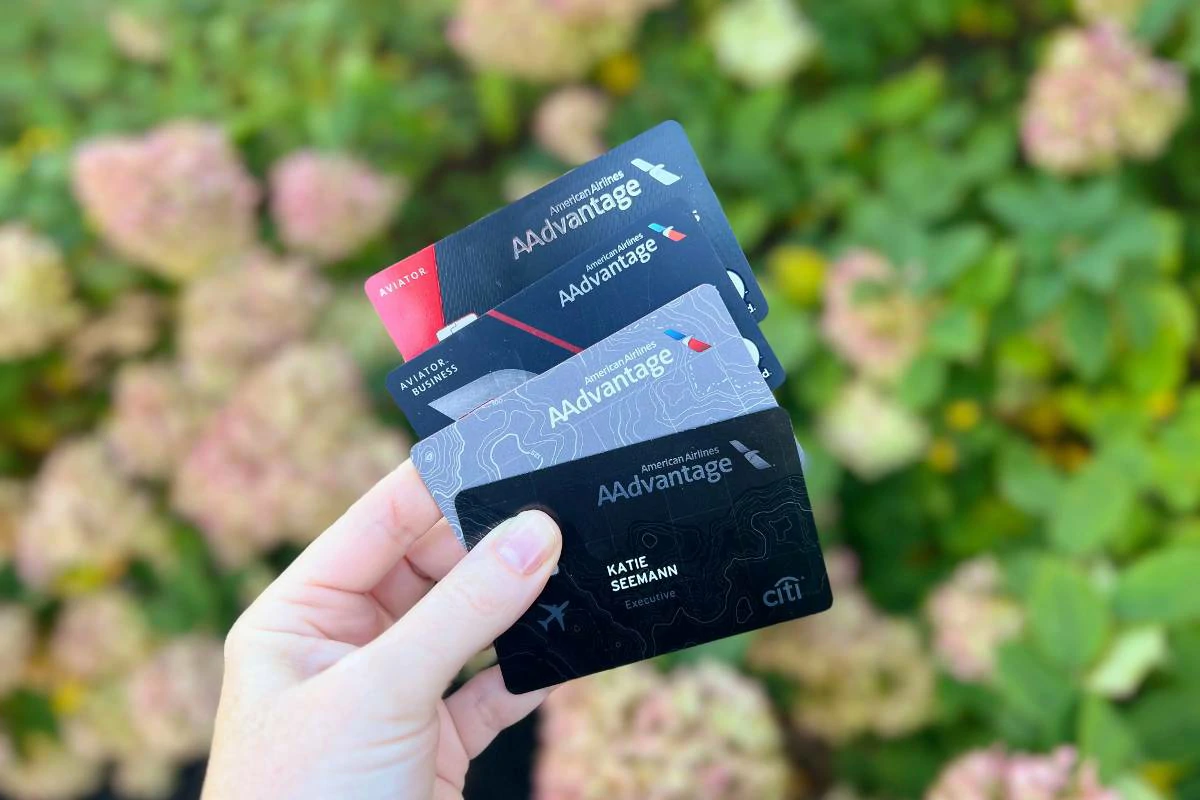What’s the best way to pay off credit card debt? Answer is – The best way to pay off credit card debt depends on your individual situation. However, some general strategies include creating a budget and sticking to it, paying more than the minimum payment each month, focusing on high-interest debt first (the debt avalanche method), or tackling smaller balances first for quick wins (the debt snowball method). You can also consider a balance transfer card with a 0% introductory APR or debt consolidation loans. It’s essential to get your spending under control and seek professional help if you’re struggling.
Summary
- Understanding credit card debt: Learn the mechanics of credit card debt, including interest rates, minimum payments, and the consequences of not paying your bills on time.
- Strategies for faster repayment: Explore various debt repayment methods, such as the debt avalanche, debt snowball, balance transfers, and debt consolidation loans.
- Financial management tips: Create a budget, track your spending, and find ways to increase your income to accelerate your debt payoff journey.
- Getting help: Learn about resources available to assist you in managing your debt, including credit counseling and debt management plans.
Best Way to Pay Off Credit Card Debt?

In the labyrinthine world of personal finance, credit card debt stands as a formidable adversary. Its impact reverberates through households and economies, leaving a trail of financial strain and stress.
From missed payments and skyrocketing interest rates to damaged credit scores and even bankruptcy, the consequences of credit card debt can be devastating.
According to a 2023 report by the Federal Reserve Bank of New York, total household debt in the United States reached a staggering $17.05 trillion in the fourth quarter of 2023, with credit card balances accounting for a significant portion.
This figure underscores the pervasive nature of credit card debt and the challenges faced by millions of individuals and families striving to regain control of their financial lives.
The Impact of Credit Card Debt
The impact of credit card debt extends far beyond mere numbers on a statement. It can manifest in various ways, both tangible and intangible, affecting every facet of a person’s life:
Financial Strain: High-interest rates and minimum payments can create a cycle of debt that seems impossible to escape, leaving individuals with limited resources for other essential needs.
Emotional Distress: The burden of debt can lead to stress, anxiety, and even depression, impacting relationships and overall well-being.
Damaged Credit Scores: Late or missed payments can significantly lower credit scores, making it difficult to obtain loans, secure housing, or even land a job.
Limited Opportunities: Debt can hinder career advancement, educational pursuits, and even retirement planning.
Strained Relationships: Financial stress is a leading cause of marital discord and family conflict.
The Path to Debt Freedom
The journey towards a debt-free life begins with a fundamental shift in mindset. It requires a commitment to change, a willingness to confront one’s financial habits, and a determination to break free from the shackles of debt.
The road ahead may be long and winding, but it is not insurmountable. By implementing sound financial practices, such as creating a budget, tracking expenses, and increasing income, individuals can gradually chip away at their debt and pave the way for a brighter financial future.
Certified financial planner, David Rae, emphasizes the importance of taking action, stating, “The most important step is to start. Don’t get overwhelmed by the amount of debt you have. Start small, make a plan, and stick to it. The sooner you start, the sooner you’ll be debt-free.”
Understanding Credit Card Debt

Credit card debt is a pervasive issue, but its mechanics are often misunderstood. To effectively tackle this challenge, it’s crucial to grasp the fundamentals of how credit card debt works and the potential pitfalls of relying solely on minimum payments.
1. How Credit Card Debt Works
Credit cards offer a revolving line of credit, allowing users to borrow money up to a predetermined limit. When you use a credit card for purchases, you’re essentially taking out a short-term loan. The amount you borrow accrues interest if not paid in full by the due date on your monthly statement.
The interest rate, also known as the Annual Percentage Rate (APR), is the cost of borrowing money on your credit card. APRs can vary significantly depending on the card issuer, your creditworthiness, and prevailing market conditions.
Understanding how interest is calculated is key to managing your credit card debt effectively. Credit card interest is typically compounded daily, meaning that interest is charged on your outstanding balance each day. The longer you carry a balance, the more interest you’ll accrue, making it harder to pay off your debt.
“Many people don’t realize that credit card interest is compounded daily,” says Beverly Harzog, credit card expert and consumer finance analyst for U.S. News & World Report. “This can quickly add up, especially if you’re only making minimum payments.”
2. The Dangers of Minimum Payments
While making minimum payments may seem like a manageable way to keep your credit card debt in check, it’s a strategy fraught with peril. Minimum payments are typically a small percentage of your total balance, often as low as 2% to 3%. While this may seem affordable in the short term, it can prolong your debt repayment journey significantly.
By paying only the minimum, you’re primarily covering the interest charges, leaving little room for reducing the principal balance. This can lead to a debt trap where you’re perpetually paying interest without making substantial progress towards becoming debt-free.
Moreover, making minimum payments can negatively impact your credit score. Payment history is a crucial factor in determining your creditworthiness, and consistently paying only the minimum can signal to lenders that you’re struggling to manage your finances.
To illustrate the dangers of minimum payments, consider this scenario: If you have a $5,000 balance with an 18% APR and make only the minimum payment each month, it could take over 15 years to pay off your debt, and you’ll end up paying thousands of dollars in interest.
In contrast, increasing your payments beyond the minimum can significantly accelerate your debt repayment and save you money on interest charges. For instance, doubling your minimum payment in the above scenario could cut your repayment time in half and save you over $3,000 in interest.
“Paying more than the minimum is the single most effective way to get out of credit card debt faster,” advises financial expert Dave Ramsey. “It’s the difference between being a slave to debt and taking control of your financial future.”
3. The Impact of High-Interest Rates
One of the most insidious aspects of credit card debt is the high-interest rates often associated with it. These rates can vary significantly depending on the card issuer, your creditworthiness, and economic conditions. The average credit card interest rate in the US is currently hovering around 20%, according to the Federal Reserve, but rates can easily exceed 25% for those with lower credit scores or cards with specific features.
High-interest rates act as a formidable barrier to debt repayment, significantly increasing the total amount you owe over time. For instance, if you have a $5,000 balance with a 20% APR and only make minimum payments, you could end up paying over $5,000 in interest alone before your debt is cleared.
These exorbitant interest charges can quickly spiral out of control, making it increasingly difficult to make headway in your debt reduction efforts. This is why it’s crucial to prioritize paying off high-interest debt as quickly as possible.
“High-interest credit card debt is like a financial cancer,” warns financial educator Suze Orman. “It eats away at your income, your savings, and your peace of mind. The sooner you tackle it, the better off you’ll be.”
4. The Importance of Credit Scores
Your credit score plays a pivotal role in your financial life, affecting your ability to borrow money, secure housing, and even land a job. A good credit score can open doors to lower interest rates, better loan terms, and increased financial flexibility. Conversely, a poor credit score can lead to higher interest rates, limited credit options, and even denial of credit altogether.
Credit card debt can significantly impact your credit score, especially if you miss payments or exceed your credit limit. Payment history is the most critical factor in your credit score, accounting for roughly 35% of your FICO score. Late or missed payments can stay on your credit report for up to seven years, hindering your ability to access affordable credit in the future.
Maintaining a healthy credit score is crucial for long-term financial well-being. It enables you to access financial products and services at favorable terms, saving you money and providing greater financial security. By managing your credit card debt responsibly, you can protect your credit score and pave the way for a brighter financial future.
“Your credit score is your financial reputation,” explains Rod Griffin, senior director of consumer education and advocacy at Experian. “It’s a reflection of your financial responsibility and your ability to manage debt. By taking care of your credit score, you’re investing in your financial future.”
Strategies for Faster Repayment

Embarking on the journey to pay off credit card debt can feel overwhelming, but with the right strategies, you can accelerate your progress and achieve financial freedom sooner. Two popular and effective methods for faster repayment are the debt avalanche and debt snowball methods.
1. The Debt Avalanche Method
The debt avalanche method is a strategic approach that prioritizes paying off debts with the highest interest rates first. This method is designed to minimize the total interest paid over time, saving you money in the long run.
How it Works
- List Your Debts: Start by listing all your credit card debts, including their balances and interest rates.
- Prioritize by Interest Rate: Arrange your debts in order of highest to lowest interest rate.
- Focus on High-Interest Debt: Make minimum payments on all your debts, but allocate any extra money towards the debt with the highest interest rate.
- Repeat: Once the highest-interest debt is paid off, move on to the next highest and repeat the process until all debts are cleared.
Benefits
- Save Money: By tackling high-interest debt first, you’ll minimize the total interest accrued, potentially saving you hundreds or even thousands of dollars.
- Faster Debt Reduction: This method focuses on the most expensive debts, leading to faster overall debt reduction.
- Logical Approach: The debt avalanche method is based on sound financial principles, prioritizing debts that cost you the most.
“The debt avalanche method is a mathematically sound approach to debt repayment,” explains financial expert and author Dave Ramsey. “It’s the fastest way to get out of debt and save money on interest.”
2. The Debt Snowball Method
The debt snowball method is a psychological approach that prioritizes paying off debts with the smallest balances first. This method is designed to provide quick wins and motivation, making the debt repayment process feel more manageable.
How it Works
- List Your Debts: Start by listing all your credit card debts, including their balances and interest rates.
- Prioritize by Balance: Arrange your debts in order of smallest to largest balance.
- Focus on Small Balances: Make minimum payments on all your debts, but allocate any extra money towards the debt with the smallest balance.
- Repeat: Once the smallest debt is paid off, move on to the next smallest and repeat the process until all debts are cleared.
Benefits
- Motivation: The quick wins of paying off smaller debts can boost your confidence and motivation to continue your debt-free journey.
- Psychological Impact: Seeing your debt list shrink can provide a sense of accomplishment and progress, making the process feel less daunting.
- Easier to Start: Tackling smaller debts first can be easier to manage, especially if you’re starting with limited resources.
Personal finance expert and author Ramit Sethi advocates for the debt snowball method, stating, “The debt snowball method is not about math; it’s about behavior change. It’s about creating momentum and building confidence.”
3. Balance Transfer Cards: Pros and Cons
Balance transfer cards can be a powerful tool in your debt repayment arsenal, offering a temporary reprieve from high-interest rates. However, they come with both advantages and disadvantages that you should carefully consider.
Pros
- 0% Introductory APR: Many balance transfer cards offer a 0% introductory APR for a specified period, typically ranging from 12 to 21 months. This allows you to pay down your debt without accruing interest during the promotional period.
- Lower Interest Rate: Even after the introductory period ends, the ongoing APR on a balance transfer card may be lower than your existing credit card rates, potentially saving you money on interest charges.
- Consolidated Debt: By transferring multiple balances onto a single card, you can simplify your payments and potentially lower your overall interest rate.
Cons
- Balance Transfer Fees: Most balance transfer cards charge a fee for transferring balances, typically ranging from 3% to 5% of the amount transferred. This fee can offset some of the potential savings from the lower interest rate.
- Limited Time: The 0% introductory APR is temporary, and once it expires, the interest rate may increase significantly.
- Potential for Overspending: Transferring balances to a new card can create a false sense of financial security, leading to overspending and increased debt.
- Eligibility Requirements: Balance transfer cards often require good to excellent credit scores. If your credit is less than stellar, you may not qualify for the best offers.
| Feature | Pros | Cons |
|---|---|---|
| Introductory APR | 0% APR for a specified period | Temporary benefit |
| Interest Rate | Potentially lower than existing rates | May increase after introductory period |
| Debt Consolidation | Simplify payments and potentially lower overall interest rate | Balance transfer fees can offset savings |
| Eligibility | Good to excellent credit required | May not qualify with lower credit scores |
“Balance transfer cards can be a valuable tool for paying off debt faster, but they’re not a magic bullet,” says Ted Rossman, senior industry analyst at Bankrate. “It’s crucial to have a solid plan in place to pay off the balance before the introductory period ends.”
4. Debt Consolidation Loans: When They Make Sense
Debt consolidation loans are another option for streamlining your debt repayment. These loans allow you to combine multiple debts into a single loan with a fixed interest rate and a set repayment term.
When They Make Sense
- High-Interest Debt: If you have multiple high-interest credit card debts, a consolidation loan may offer a lower interest rate, saving you money on interest charges.
- Simplified Payments: Consolidating your debts into one loan can make it easier to manage your payments and avoid missed deadlines.
- Fixed Repayment Term: Debt consolidation loans come with a fixed repayment term, providing a clear timeline for becoming debt-free.
When They Don’t Make Sense
- Low-Interest Debt: If your credit card debts have low-interest rates, a consolidation loan may not offer significant savings.
- Long Repayment Term: While a longer repayment term can result in lower monthly payments, it can also mean paying more interest over time.
- Underlying Spending Habits: A debt consolidation loan won’t solve your financial problems if you continue to overspend. It’s essential to address your spending habits before taking on additional debt.
5. Additional Tips for Faster Repayment
In addition to the strategies mentioned above, here are some additional tips to accelerate your debt repayment journey:
- Increase Your Payments: Pay more than the minimum payment each month, even if it’s just a small amount.
- Cut Expenses: Identify areas where you can cut back on spending, such as dining out, entertainment, or subscription services.
- Increase Income: Explore opportunities to boost your income, such as taking on a side hustle or freelancing.
- Use Windfalls Wisely: If you receive unexpected money, such as a tax refund or bonus, apply it towards your debt.
- Negotiate with Creditors: Contact your credit card companies and ask if they can lower your interest rates or waive any fees.
- Consider Professional Help: If you’re struggling to manage your debt, consider seeking help from a credit counselor or financial advisor.
Financial Management Tips

Effectively managing your finances is crucial for achieving and maintaining a debt-free lifestyle.
By implementing these tips, you can gain control of your spending, boost your income, and negotiate with creditors to accelerate your journey towards financial freedom.
1. Creating a Budget That Works
A budget is the cornerstone of sound financial management. It’s a roadmap that helps you track your income and expenses, ensuring that your spending aligns with your financial goals. A well-crafted budget can empower you to make informed decisions about your money and avoid overspending.
To create a budget that works for you, start by listing all your sources of income and categorizing your expenses. Track your spending for a month to get a clear picture of where your money is going. Then, allocate your income to different spending categories, prioritizing essential needs like housing, food, and transportation.
Remember, a budget is not meant to be restrictive but rather a tool to help you achieve your financial goals. It should be flexible and adaptable to your changing circumstances. Regularly review and adjust your budget as needed to ensure that it remains relevant and effective.
“A budget is not about deprivation; it’s about empowerment,” says Erin Lowry, author of “Broke Millennial.” “It’s about taking control of your money and making it work for you.”
2. Tracking Your Spending
Tracking your spending is a vital component of financial management. It allows you to monitor your progress towards your financial goals, identify areas where you may be overspending, and make necessary adjustments to your budget.
There are various methods for tracking your spending, ranging from traditional pen-and-paper methods to digital tools and apps. Choose a method that suits your lifestyle and preferences. The key is to be consistent and diligent in recording your expenses.
3. Increasing Your Income
Increasing your income can significantly accelerate your debt repayment journey. By boosting your earnings, you’ll have more resources to allocate towards your debts, allowing you to pay them off faster and save money on interest.
There are numerous ways to increase your income, both in the short and long term. In the short term, consider taking on a side hustle, freelancing, or selling unwanted items. In the long term, focus on career advancement, acquiring new skills, or starting a business.
“Don’t be afraid to think outside the box when it comes to increasing your income,” advises financial expert and author J.D. Roth. “There are endless possibilities, and the more creative you are, the more successful you’ll be.”
4. Negotiating with Creditors
If you’re struggling to make your credit card payments, don’t hesitate to reach out to your creditors. Many credit card companies are willing to work with borrowers who are facing financial difficulties.
You can negotiate with your creditors for lower interest rates, waived fees, or even reduced balances. Be prepared to explain your financial situation honestly and clearly. It’s also helpful to have a plan in place for how you intend to repay your debt.
“Negotiating with creditors can be intimidating, but it’s worth it,” says Gerri Detweiler, education director at Nav, a business credit and financing resource. “You’d be surprised at how willing they are to work with you if you’re proactive and communicative.”
Getting Help

When facing the overwhelming burden of credit card debt, it’s important to remember that you don’t have to navigate this journey alone. Several resources and options are available to assist you, including credit counseling, debt management plans, and, as a last resort, bankruptcy.
1. Credit Counseling: Is It Right for You?
Credit counseling offers valuable guidance and support for individuals struggling with debt. Certified credit counselors can help you assess your financial situation, develop a personalized budget, and create a plan to tackle your debt. They can also provide education on financial management and debt repayment strategies.
Benefits of Credit Counseling
Free or Low-Cost Services: Many credit counseling agencies offer free or low-cost services, making them accessible to those with limited resources.
Personalized Guidance: Credit counselors work with you one-on-one to develop a customized plan tailored to your specific needs and circumstances.
Financial Education: Credit counseling provides valuable financial education to help you make informed decisions about your money and avoid future debt problems.
Debt Negotiation: In some cases, credit counselors may be able to negotiate with your creditors for lower interest rates or waived fees.
Who Should Consider Credit Counseling
Overwhelmed by Debt: If you’re feeling overwhelmed by debt and unsure where to start, credit counseling can provide much-needed guidance and support.
Struggling to Make Payments: If you’re having difficulty making your minimum payments, credit counseling can help you explore options for reducing your monthly payments.
Need Financial Education: If you lack knowledge about personal finance and debt management, credit counseling can provide valuable education to empower you to make informed financial decisions.
You can find reputable credit counseling agencies through the National Foundation for Credit Counseling (NFCC) or the Financial Counseling Association of America (FCAA).
2. Debt Management Plans (DMPs): How They Work
A Debt Management Plan (DMP) is a structured repayment plan offered by credit counseling agencies. It consolidates your unsecured debts, such as credit cards and personal loans, into a single monthly payment.
DMPs typically involve negotiating with creditors for lower interest rates and waived fees, making it easier to manage your debt and pay it off faster.
Benefits of DMPs
Reduced Interest Rates and Fees: Credit counselors can often negotiate with creditors to reduce interest rates and waive fees, making your debt more affordable.
Single Monthly Payment: DMPs consolidate your debts into one monthly payment, simplifying your finances and making it easier to track your progress.
Professional Guidance: You’ll have the support and guidance of a credit counselor throughout the DMP process.
Who Should Consider a DMP
Struggling with Multiple Debts: If you have multiple credit card debts and are struggling to manage them, a DMP can provide a streamlined solution.
High-Interest Rates: If you have high-interest debts, a DMP may be able to reduce your interest rates and save you money.
Seeking Professional Help: If you’re seeking professional guidance and support in your debt repayment journey, a DMP can provide the structure and accountability you need.
3. Bankruptcy: A Last Resort
Bankruptcy should only be considered as a last resort after exploring all other debt relief options. It’s a legal process that can provide relief from overwhelming debt, but it comes with severe consequences, including a long-lasting negative impact on your credit score.
Types of Bankruptcy
Chapter 7 Bankruptcy: This type of bankruptcy liquidates your assets to pay off your debts. It’s often referred to as “liquidation bankruptcy.”
Chapter 13 Bankruptcy: This type of bankruptcy involves creating a repayment plan to pay off your debts over a period of three to five years. It’s often referred to as “reorganization bankruptcy.”
Who Should Consider Bankruptcy
Insurmountable Debt: If your debt is so overwhelming that you have no realistic prospect of repaying it, bankruptcy may be the only viable option.
No Other Options: If you’ve exhausted all other debt relief options, such as credit counseling and debt management plans, bankruptcy may be a last resort.
Before Filing for Bankruptcy
Seek Professional Advice: Consult with a bankruptcy attorney to discuss your options and understand the potential consequences.
Consider Alternatives: Explore all other debt relief options before resorting to bankruptcy.
Understand the Impact: Bankruptcy will have a long-lasting negative impact on your credit score, making it difficult to obtain credit in the future.
“Bankruptcy is a serious decision with long-term consequences,” says Cathy Moran, president of the National Association of Consumer Bankruptcy Attorneys. “It’s important to understand the potential impact before making this decision.”
Methodology
Research and Data Collection
The information presented in this article is the result of extensive research and data collection from credible sources. We have consulted a wide range of materials, including academic studies, government reports, financial publications, and expert opinions, to ensure the accuracy and reliability of the information provided.
We have utilized reputable resources such as the Federal Reserve Bank of New York’s Quarterly Report on Household Debt and Credit to gather data on credit card debt trends and statistics.
Additionally, we have referenced consumer finance websites like Bankrate and NerdWallet, which provide up-to-date information on credit card interest rates, balance transfer offers, and debt consolidation loans.
Expert Opinions
To enhance the depth and credibility of our analysis, we have incorporated insights and opinions from renowned financial experts and professionals. We have referenced quotes and advice from individuals such as Dave Ramsey, a personal finance expert and author of numerous bestselling books on debt management, and Beverly Harzog, a credit card expert and consumer finance analyst for U.S. News & World Report.
Furthermore, we have sought guidance from local experts in the financial services industry, such as certified financial planners and credit counselors, to gain a nuanced understanding of the challenges faced by individuals grappling with credit card debt. Their insights have been invaluable in shaping our recommendations and strategies for faster repayment.
FAQs
How long does it typically take to pay off credit card debt?
The time it takes to pay off credit card debt varies depending on several factors, including the total amount owed, interest rates, minimum payments, and additional payments you can make. Using a debt repayment calculator can help you estimate the time frame and determine the most effective repayment strategy for your situation.
Can I still use my credit cards while paying off debt?
While it’s generally advisable to avoid using credit cards while paying off debt, there may be situations where using a card for essential expenses is unavoidable. However, it’s crucial to exercise discipline and avoid accumulating additional debt. If you choose to use your cards, prioritize paying off the new balances in full each month to avoid accruing additional interest.
What should I do if I can’t afford my minimum payments?
If you’re struggling to make your minimum payments, it’s important to take action immediately. Contact your credit card companies to discuss your options. They may be able to offer temporary relief, such as lower interest rates or a revised payment plan. Additionally, consider seeking help from a credit counselor who can provide guidance and support in managing your debt.
What is the best way to pay off credit card debt?
The most effective way to pay off credit card debt is to choose a repayment method that suits your financial situation and stick to it consistently. Popular methods include the debt avalanche (highest interest rate first) and debt snowball (smallest balance first) methods.
Should I consolidate my credit card debt?
Debt consolidation can be a viable option if it allows you to simplify your payments, lower your interest rate, or reduce your monthly payments. However, it’s crucial to carefully weigh the pros and cons before making a decision.
How can I improve my credit score while paying off debt?
Making timely payments and reducing your credit utilization ratio are two key factors in improving your credit score while paying off debt. Additionally, avoid opening new credit accounts or closing old accounts as these actions can negatively impact your score.
The Bottom Line
Taking control of your credit card debt is an empowering step towards financial freedom. By understanding the mechanics of credit card debt, implementing effective repayment strategies, and practicing sound financial management, you can break free from the cycle of debt and achieve your financial goals.
Remember, the journey to a debt-free life requires commitment, discipline, and perseverance. But with the right knowledge and tools, you can overcome the challenges and emerge stronger and more financially secure.







